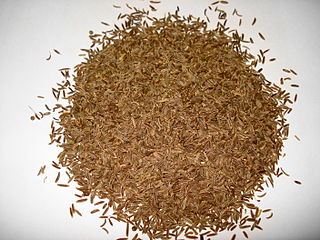- Tanya has been involved in gymnastics since the age of 2. At age 8, she participated in her first Junior National Championship, and at age 11, she won Juniors for the first time. Now, at age 14, she has already competed in two National Championships and placed 2nd at the last one.
- Ashley started gymnastics at age 10. While she has a great deal of potential and has been selected for her local club team, she has not yet been to a national meet.
- Jordan likes gymnastics a lot and her parents think she'd be good at it. However, she has no history at all with gymnastics.
Tanya, Ashley and Jordan's parents have all asked that their daughters be allowed to audition for the U.S. Olympic Team. Where should the coaches focus their efforts?
Pretty obvious, right? We all know that this evaluation should definitely not depend on what parents think. While important, potential without results is also not enough. When resources are going to be committed, it's most important to look at how a child actually performs.
So what does this have to do with food allergies, you ask? Well...I'm back to my theme from last week: polarization and why 49% of non-food-allergic people think food allergy fears are blown out of proportion.
Frankly, I was hesitant to touch Part II of this topic, because I know it will piss people off. BUT...it's the heart of what's wrong with food allergy advocacy. And really...if I won't say it...who will?
As with our gymnasts above, there are different degrees of food allergy history. Consider our three children again:
- Tanya had her first reaction to peanuts as an infant and has been hospitalized several times from trace exposures. Two of those times, she required resuscitation and intubation.
- Ashley has had a reaction to peanuts that involved hives, vomiting and a sensation of throat closing. She has never been hospitalized.
- Jordan has never had a reaction to peanuts. However, she was tested as a toddler and her test results showed sensitization to peanut protein, so her parents assume she has an allergy and that it's life-threatening.
Tanya, Ashley and Jordan's parents have all asked that peanuts be completely removed from their children's schools. Predictably, some parents react with hostility. And then the name calling begins. Parents who don't automatically support the demand for a food ban are labeled uncaring. Parents who ask for the ban are labeled overprotective.
How can two groups of people be so polarized? I think the difference comes down to the assessment of potential risk vs. demonstrated risk:
How can two groups of people be so polarized? I think the difference comes down to the assessment of potential risk vs. demonstrated risk:
Food Allergy Parents Focus On
Potential Risk
Potential Risk
These three children are the same. It doesn't matter how small the risk. The possibility of anaphylaxis and death is there for all three kids; therefore, everyone should jump through
every hoop, every time.
every hoop, every time.
Non-Food Allergy Parents Focus On Demonstrated Risk
These three children are not the same. There needs to be at least some consideration of how likely an outcome this is before resources are committed and demands are made on others.
Doctors say reactions are entirely unpredictable and that a mild reaction history can suddenly become life-threatening. At the same time, among their colleagues they say only some reactions reach the most severe level (~15%) and that a history of severe reactions and/or asthma is important when considering risk. In other words, a mixed message that involves both potential and demonstrated risk.
Let me stop to make something clear here. I strongly believe ALL these parents need to take their child's allergy, or possible allergy, seriously and be prepared to deal with a severe reaction. Epinephrine is life-saving and we don't know who will have a severe reaction.
However, being prepared to deal with a severe reaction, should it occur, and expecting it to occur are two different things. And, asking other people to change their own behavior (not sending peanut butter to school) based on the expectation that a severe allergic reaction will occur, without any other evidence, is where the equation becomes problematic for many people.
Food allergy parents live in a world of "could happen." We've gotten comfortable living here. I think it's easy to forget that the rest of the world doesn't live here all the time.
And, for some of us, could has become can; can has become will; will has become always. It's easy to see how the phrase:
Allergies are unpredictable and a
mild allergy could become more severe
mild allergy could become more severe
morphs into
Allergies are unpredictable and a
mild allergy will (always) become more severe
mild allergy will (always) become more severe
It's such a small difference, but it's the difference between being seen by others as credible, and being seen by others as over-reactive.
The best advice I ever got came from the mom of a child older than my own. She said to me "when you find yourself getting upset and telling others what could happen, go back to talking about what did happen. Just recounting your actual experience will be enough to get what you really need."
Mostly, that's been true for us. How does it work for you?






.jpg/382px-Chasm_(PSF).jpg)




































